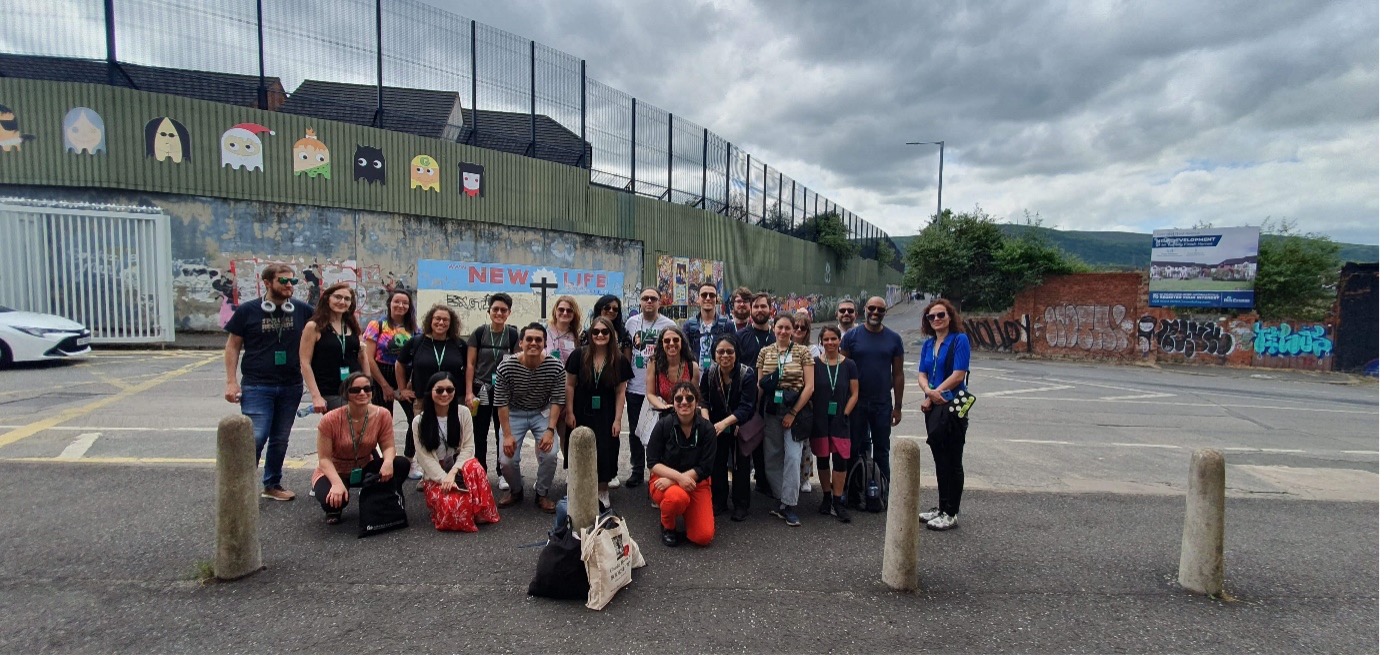Report on EASP Small Group Meeting: Social Cohesion in Divided Societies
18.01.2024, by Media Account in meeting report
June 22-24th, 2023 at Queen’s University of Belfast, UK; Organizers: Gülseli Baysu, Rhiannon Turner, and Özden Melis Uluğ

In today’s world, societies face issues such as conflict, polarization, inequality, and divisions, making social cohesion difficult. A divided society is different—it does not function as well, it is already divided along some ethnic, religious, sectarian, or cultural lines. What distinguishes divided societies from others is their inability to agree on a common process for decision-making and to forge a common identity, making social cohesion an even more challenging goal to achieve. Therefore, our understanding of a divided society not only refers to those usually known as ongoing (e.g., Turkey) or post-conflict societies (e.g., Northern Ireland) but also to those relatively conflict-free (e.g., Belgium). Moreover, these challenges in divided societies impact not only the respective parties of those societal divisions but also those migrating to a divided country.
Given the importance of this topic, some of the questions we sought to address in this meeting included: What is the role of national/religious/ethnic identities in conflicts? What divides us, and what unifies us? How can we tackle the problems of division in society? What kind of interventions and policies may be useful? What is the role of narratives or shared representations of conflict and victimhood in ongoing- or post-conflict societies? What are the social-psychological effects of these divisions on individuals and groups? Where do immigrants belong in such societies? What promotes and prevents social cohesion in divided societies? By exploring these questions, the meeting aimed to deepen our understanding of social cohesion in divided societies and generate insights that could contribute to more effective strategies for fostering unity and cooperation in such complex environments.
This meeting brought together a diverse group of forty-two researchers, with half of them being members of the EASP (European Association of Social Psychology), representing various parts of the world. The event took place at Queen's University in Belfast, UK, at the end of June 2023 and spanned two days, with the central focus on discussing the concept of social cohesion within divided societies. The meeting has been a success at multiple levels.
The talks presented during the meeting were not only informative but also deeply inspiring, providing valuable insights that fuelled the discussions—a crucial component of the event's success. In alignment with the questions and issues the gathering aimed to explore, the topics of the talks encompassed a wide spectrum. These topics included:
• Public remembrance, victimhood and reconciliation
• Intergroup contact
• Diversity and immigrants
• Political polarization
• Social cohesion at various levels (groups, communities, and societies)
• Collective action and solidarity
• The role of group identities
• Interventions aimed at addressing societal divisions
The studies presented during these talks were characterized by their diversity in terms of samples and research methods and offered a comprehensive and global understanding of these complex issues. Researchers drew from a variety of samples and contexts, ranging from European settings to as far-reaching as Colombia and Hong Kong. Furthermore, the research methods used in these studies covered a broad range, including large-scale quantitative surveys, interventions designed to effect change, mixed methodologies that combined different research approaches, and qualitative research that provided in-depth insights into the issues at hand.
The meeting not only featured presentations and discussions but also included keynote addresses from prominent researchers, Professors Linda Tropp (the University of Massachusetts Amherst) and Charles Harb (Doha Institute), as well as a workshop from Professor Shelley McKeown Jones (University of Bristol) for early career scholars.
To conclude the meeting on a meaningful note, participants were given the opportunity to engage in a social activity—a guided walking tour around the peace walls in Belfast. This activity provided a firsthand perspective on the societal divisions in Northern Ireland.
The meeting also allowed time for social interaction, with dinner and drinks provided. These social elements not only added to the event's overall enjoyment but also contributed to fostering a warm and collegial atmosphere, which is often conducive to productive networking and collaboration among researchers.
The organizers of the meeting, including Gülseli Baysu from Queen's University of Belfast, Rhiannon Turner from Queen's University of Belfast, and Özden Melis Uluğ from the University of Sussex, would like to express their gratitude and appreciation to EASP (European Association of Social Psychology) for their valuable support in making the event possible and to all the attendees who participated in the meeting for their valuable contributions.